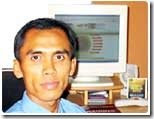Develop a more proactive approach and meet complex challenges through greater managerial effectiveness. In this three-day seminar, designed for midlevel and developing managers, the focus is on knowing yourself and how your behavior affects both your managerial effectiveness and the actions of your team. You’ll learn the importance of team dynamics and how understanding others—their goals and values, needs and wants, comfort and stretch areas—can lead to more effective managerial effectiveness though motivation, delegation, conflict resolution and overall team performance. How You Will Benefit - Ensure long-term business results by focusing on employee development
- Meet the diverse needs of all your team members with proven communication techniques
- Align motivation with work and personal goals
- Anticipate and resolve conflict situations
- Instill a culture based on trust, partnerships and respect
- Increase dialogue and constructive feedback for optimum managerial effectiveness
- Partner with your team to ensure long-term productivity
- Use delegation to increase performance and individual growth
What You Will Cover The Learning Workplace - Deal with significant changes
- Assess your approach to challenges from your staff
- Understand your behavioral profile and scoring matrix
The Manager’s Style—How Others See You - The four primary behavioral styles: relater, socializer, thinker, director
- How to recognize others’ behavioral styles to increase support and communication
- Style adaptability to increase your managerial effectiveness
Managing Teams - Teams, team stages and work group
- How to develop, create and manage a successful team
The Transformational Coach—Partnership Coaching - How to move from a boss to a coach
- The competencies and strengths of a transformational coach
- Identify your developmental strategies
Style and Motivation - Key values in determining various ways to motivate people
- The relationship between values and individual expectations
- Assess your company’s existing recognition, reward and benefit systems in relation to employee growth and performance
- How to select motivators based on individual needs
Managing Conflict - Assess your preference and approach for dealing with conflicts
- Identify the critical modes for reaching successful resolution
- Shift your style to manage conflicts
Delegation for Growth - Barriers and techniques to overcome resistance and minimize risks
- Reexamine the effectiveness of your current delegating techniques
- Delegation styles and approaches
Managing Performance and Growth - Apply all concepts learned through simulation actions
- How to promote continuous learning among your staff
Who Should Attend Experienced managers with three to five years of management experience who are interested in enhancing their managerial effectiveness. note: To attend this seminar, we recommend prior attendance in at least one skills-based management course.
Extended Training Description Learning Objectives - Ensure Long-Term Business Results by Effectively Developing People
- Meet the Diverse Needs of All Your Team Members with Proven Communication Techniques
- Motivate Your People
- Anticipate and Resolve Conflict Situations
- Instill a Culture Based on Trust and Partnerships
- Increase Dialogue and Constructive Feedback
- Understand the Importance of Transformational Coaching as a Tool for Partnering with Your Team
- Use Delegation to Increase Productivity and Individual Growth
The Learning Workplace - Define the Value of Participating in This Seminar—to Your Organization and Yourself
- Assess Your Approach to Challenges from Your Staff
- Identify Seminar Topics to Emphasize How to Best Meet Your Learning Priorities
How Others See Us—The Manager’s Style - Identify the Primary Behavioral Characteristics Others See in the Workplace
- Determine How Behavioral Style Influences the Actions of Others
- Plan Actions to Improve Personal and Group Effectiveness Using a Range of Behavioral Styles
Managing Teams - Differentiate a Team from a Workgroup
- Participate in a Successful Team Activity
- Focus on Behavioral Indicators That Lead to Successful Team Performance
- Develop Strategies for Improving the Effectiveness of Teams
The Transformational Coach—Partnership Coaching - Redefine the Role of the Manager as a Learning Partner
- Contrast Transactional and Transformational Coaching Behaviors
- Assess the Readiness of Participants’ Current Work Environment for Effective Partnership Coaching
- Assess Current Coaching Competencies
- Develop a Plan for Evolving a Trusting Learning Environment
- Select Key Behavioral Approaches to Improve Partnership Coaching Effectiveness
Style and Motivation - Determine Key Values That Are Typical to Each Behavioral Style
- Articulate the Relationship between Values and Individual Expectations in Motivating Employees
- Identify What Current Recognition, Reward, and Benefit Systems Provide and/or Lack Motivators of Employee Growth and Performance
- Select Motivators Based on Individual Needs
Managing Conflict - See How Proactively Dealing with Conflict Is a Key Skill of Effective Managers
- Assess Your Personal Preferences and Habits in Dealing with Conflict
- Identify Five Primary Modes for Reaching Successful Resolution
- Shift Your Approach Effectively by Recognizing Key Indicators
- Describe Situations to Others That Illustrate the Need for Skill in Using All Approaches
- Promote a Learning Culture That Uses Conflict as a Platform for Building Trust and Enhancing Creativity
Delegation for Growth - Use Delegating as a Tool for Professional and Personal Growth
- Recognize the Conditions of Risk in Delegating
- Identify Barriers to Effective Delegating
- Assess the Effectiveness of Your Current Delegating Practices
- Know When Not to Delegate
Managing Performance and Growth—A Management Simulation - Approach Performance Management of Your Work Unit Using All of the Seminar Concepts in a Simulated Case
- Experience Team Dynamics
- Practice Successful Team Behaviors
- Assess Your Learning from the Seminar
- Identify Strategies That You Will Use Back at Work
Pelatihan, Kursus, Seminar, Workshop Provider Download Katalog Pelatihan 2009 |  |
Instructor

Schedule
| | February 23-25, 2009 | | | 3 days | 
Venue

Tuition Fee
| Rp. | 4.800.000,- | | | per participant, excluding accommodation & tax. | 
Registration
| | Send by email -or- fax to: | PT. FOCUS TRACO INDONESIA
Wisma Pakuan, Jl. Pakuan 12
BOGOR - 16143
 |


Tidak ada komentar:
Posting Komentar